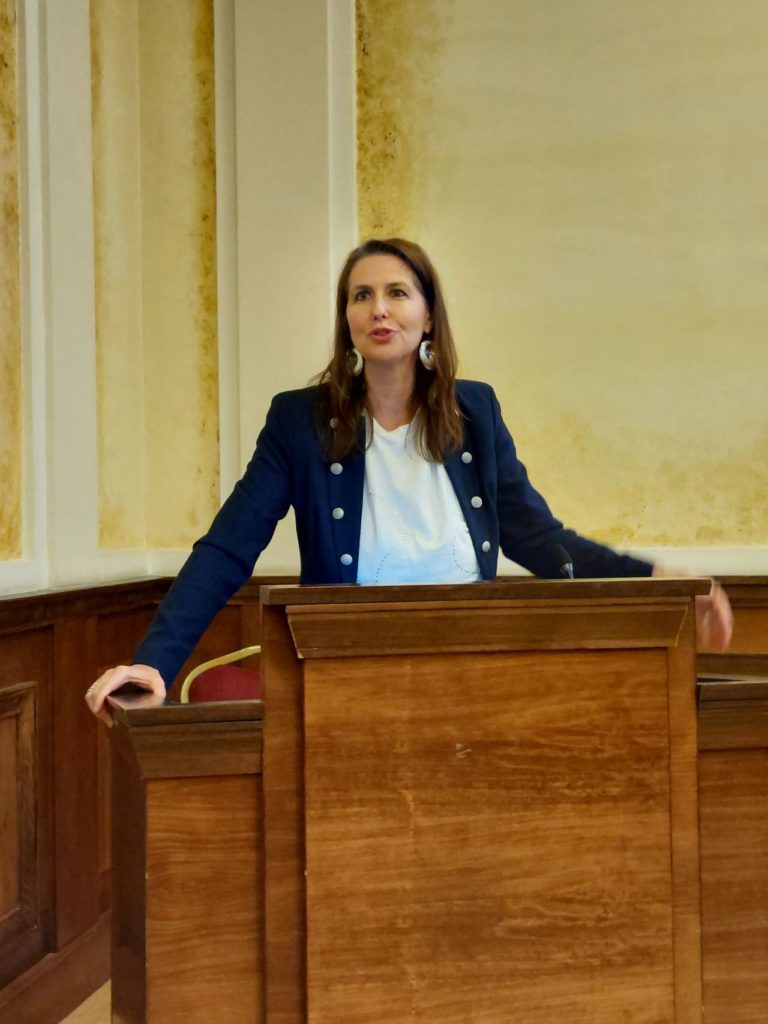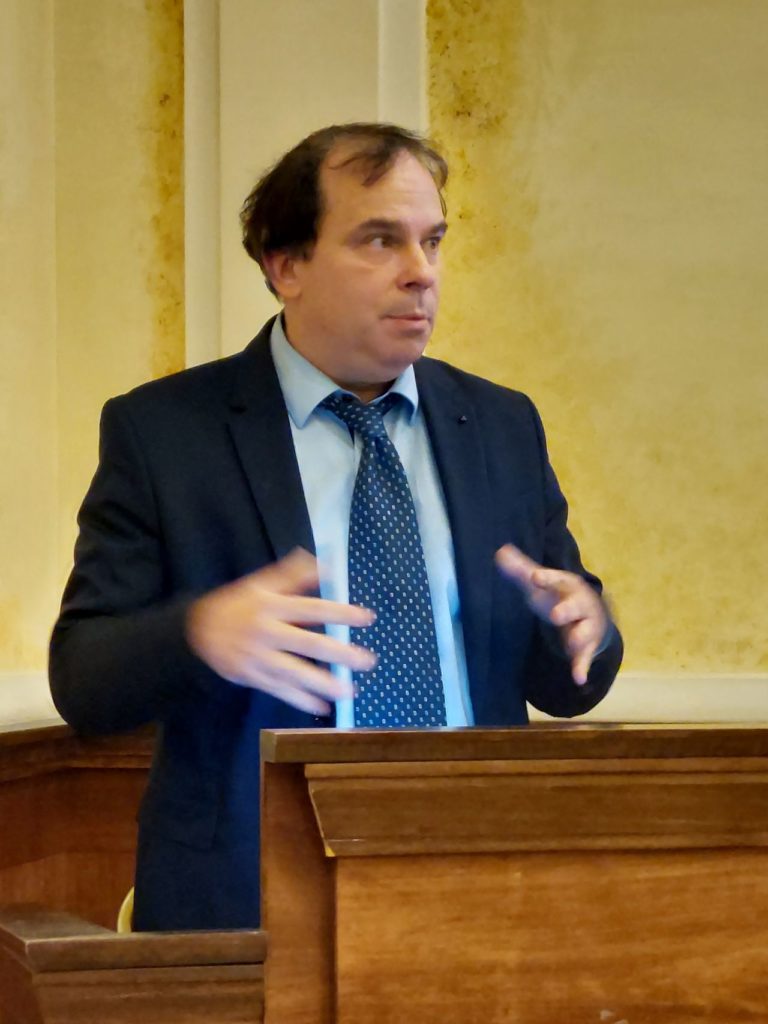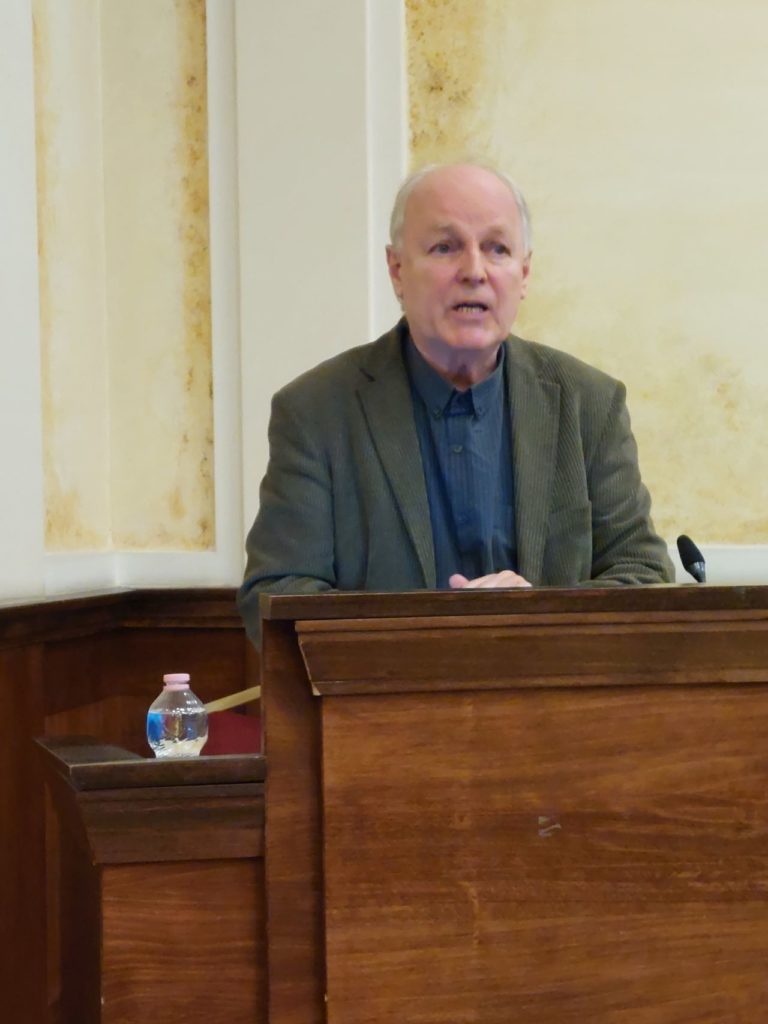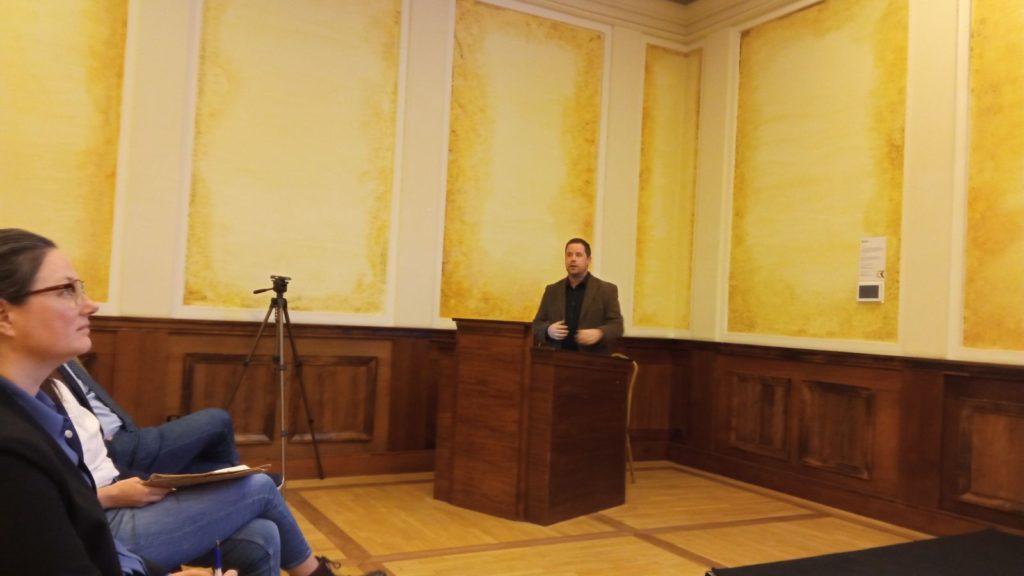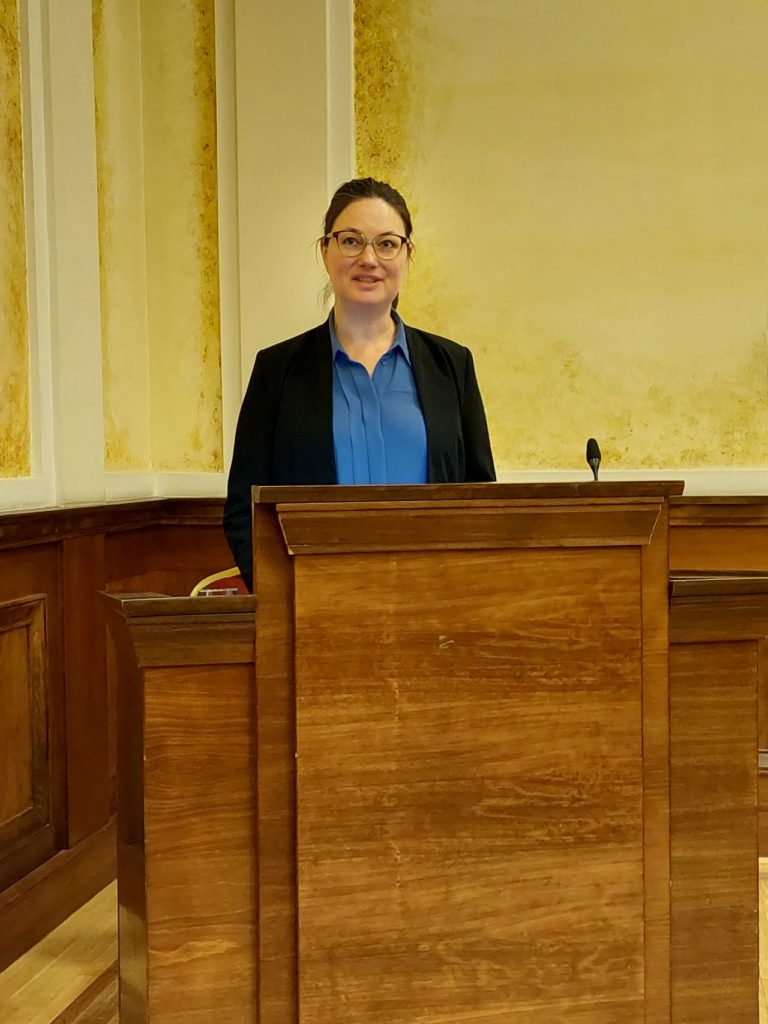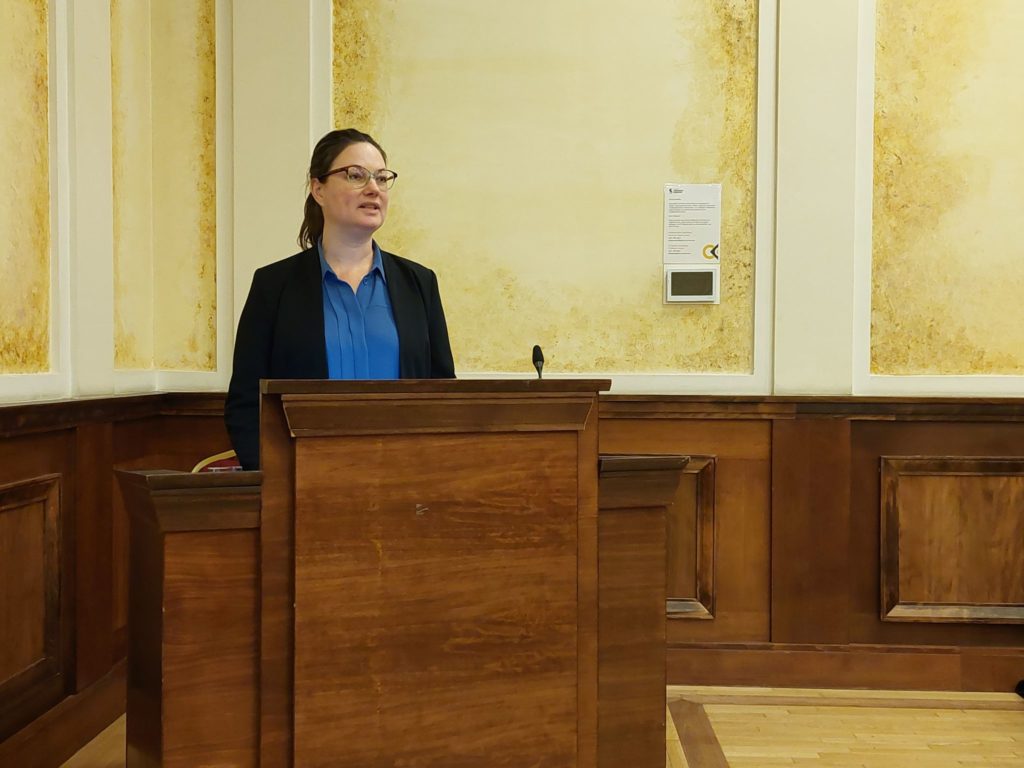The Department of International Relations celebrated its 60th anniversary with a conference
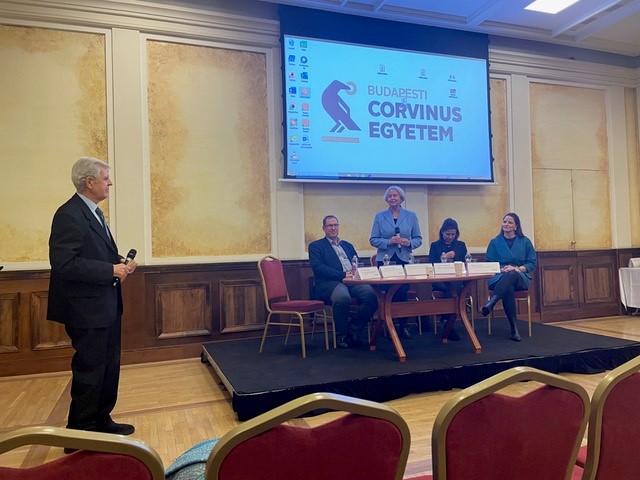
The birthday commemorative conference was opened by Bernadett Lehoczki, Associate Professor in the Department of International Relations (in the absence of Eszter Kirs, Head of Department). In her introduction, she said that the department was a pioneer in the establishment of the field of study in Hungary. She stressed that through the establishment of the field of international relations, several branches of science have been introduced to the Hungarian academic audience, including international relations theory, Area Studies on the political relations of geographical areas and foreign policy analysis.
She expressed special thanks to Zsolt Rostoványi, former Head of Department, Dean and Rector, under whose leadership the department had a golden age: it became the leader of the Hungarian market, became extremely popular among students and internationalised successfully. In the latter, she highlighted the role of Erzsébet Kaponyi, Professor Emerita of the Department, and praised the work of László Csicsmann, who has strengthened not only the Department, but the entire social science education and research at Corvinus. She expressed her gratitude to Ágnes Szunomár, Head of Institute, Éva Ignáth, Assistant Professor and Eszter Kirs, Head of Department, for managing the changes resulting from the model change and the reorganisation of the Department. In conclusion, she wished the department at least 60 more years of successful work.
Gry Thomasen, NATO-Russia relations expert, Senior Policy Staff Member and Programme Manager at the British-American Security Information Council, delivered the keynote address on non-proliferation – the peaceful uses of nuclear energy and nuclear disarmament. The relationship between the specialist and the department dates back to 2019, when he came to Corvinus as a guest researcher, and then co-edited with several Corvinus researchers – Péter Marton, Csaba Békés and András Rácz – the forthcoming book entitled Palgrave Handbook of Non-State Actors in East-West Relations.
Keynote speech on the history of the nuclear arms race and NATO-Russia relations
The researcher recalled that the founding of the department in 1963 was also an important period in international history. It was the time of Dr Martin Luther King’s famous speech and the creation of the direct crisis communication hotline between the Soviet Union and the United States after the Cuban Missile Crisis, which is still in operation today. While many had expected that many new states would have nuclear weapons within a decade, the crisis has made key players aware of the need to establish a stable global “nuclear order”. Thus, in 1963, the Partial Nuclear Test Ban Treaty was signed. Thomasen outlined the path that led from there to the 1968 Non-proliferation Treaty. He called the latter his favourite treaty. He stressed that it rests on three pillars: non-proliferation, disarmament and the peaceful use of nuclear energy. Today, 191 states are involved, but not all of them, and the fact that we are moving from a bipolar Cold War world order to a multipolar system is a source of further complications, he said.
Speaking about NATO-Russia relations, he said that the international organisation currently has a huge task to work out how to deal with Russia since the war in Ukraine, because there are serious differences of opinion among NATO members. Moreover, there are also different understandings of what constitutes safety, for example, the level of deterrence required. According to him, the North-Eastern European member states – especially the Baltic countries and Poland – are placing much more emphasis on physical security, while some Western European countries are still pushing for closer cooperation with Russia. Although NATO’s 2022 strategy states that Russia has violated the norms that have contributed to stable European security and that there is a possibility of an attack against allies, NATO remains open to communication with Moscow, Thomasen concluded his lecture. Responding to a question, he said he was confident that if NATO recognised that the two main divergent internal perceptions of the Russian threat were an old problem that undermined the Alliance’s unity, a solution could be moved forward through continued dialogue.
Panel discussion on the Cuban missile crisis, the war in Ukraine, arms limitation treaties and the perspectives of emerging countries
The keynote speech was followed by a panel discussion, the first of which was given by Csaba Békés, University Professor of International Relations Department and Director of the Cold War Research Centre. On the Cuban missile crisis, he stressed that it was not as dangerous as it seemed and underlined that the outcome of the crisis was both a victory and a failure for both sides. He explained that since the development of the hydrogen bomb has brought humankind closer than ever to a nuclear war that could effectively destroy our world, both Russia and the US have realised that there is no other way but to live together and tolerate each other.
Péter Marton, Associate Professor at the Department, spoke about the history and future prospects of the war in Ukraine and Russia, to draw lessons for strategic deterrence. According to the rapporteur, Russia miscalculated when it counted on a short invasion of Ukraine of a few days, but the West also made a mistake when it gave mixed and weak signals to Russia as a deterrent. He argued that the sanctions should remain because Russia will seek to restore its military capabilities in the wake of the losses suffered in Ukraine, which must be slowed down. He referred to the stability-instability paradox and the related growing risk of conventional armed conflicts. On the outlook, he said that Europe does not sufficiently see the global context, and that to meet the challenges, much more than restoring depleted ammunition stocks will be needed to provide an effective deterrent.
Zoltán Gálik, Associate Professor described in detail the development of international treaties on nuclear and other weapons, such as chemical, biological, artificial intelligence, space, cyber and conventional weapons, and spoke about their implementation and monitoring.
Bernadett Lehoczki brought into the discussion the perspective of emerging countries, which are divided on the nuclear issue and overlap with groups of countries with and without nuclear weapons. She pointed out that in Latin America, Brazil and Argentina have had nuclear ambitions for decades, and spoke in detail about Brazil’s relationship with nuclear energy. She stressed that the South American country’s rhetoric and decision-making was guided by autonomy, and by the need to achieve a place in the world worthy of its size.
Roundtable on the role of international relations as an academic discipline
In the second part of the conference, a round table was held entitled ‘International Relations, Theory and Practice, Old and New Dilemmas’ moderated by Erzsébet Kaponyi and László Csicsmann, University Professor at the Corvinus CIAS. As an informal speaker at the beginning of the discussion, Zsolt Rostoványi briefly summarized the history of the Department of International Relations. He said it was set up by order of a higher authority in 1963 as a diplomatic replacement. It spans several disciplines, so it has had a hard time finding its place in the Hungarian context, it has changed not only its name but also its status many times, and the biggest achievement is that the department still exists today. László Csicsmann added that the department also preceded the establishment of the Hungarian Institute of Foreign Affairs, which is celebrating its 50th anniversary. Erzsébet Kaponyi stressed that when she thinks of her work in the department, she does not keep track of when, how many and what subjects she taught, but of the careers her students build after graduation.
Boglárka Koller, University Professor, Vice-Rector for International Affairs at the Ludovika University of Public Service and Corvinus alumna, said she is grateful for the mixed programme and the economics department here, because she gets a lot of use out of it in her work – European integration is her research field. Csilla Szabó, Communications Director of the Tempus Public Foundation, also a Corvinus alumna, confirmed the importance of the economic approach in education and highlighted the student activism in their cohort, which also influenced their later careers. István Gyarmati, Ambassador, Honorary University Professor, began his speech with a personal recollection: although he was admitted to the Moscow Diplomatic School, he chose education in Hungary because of the poor living conditions. He considers the work of the department to be outstanding at all times, it has given Hungary many good diplomats who have stood their ground even after the regime change. He was particularly able to use international law and protocol in his career.
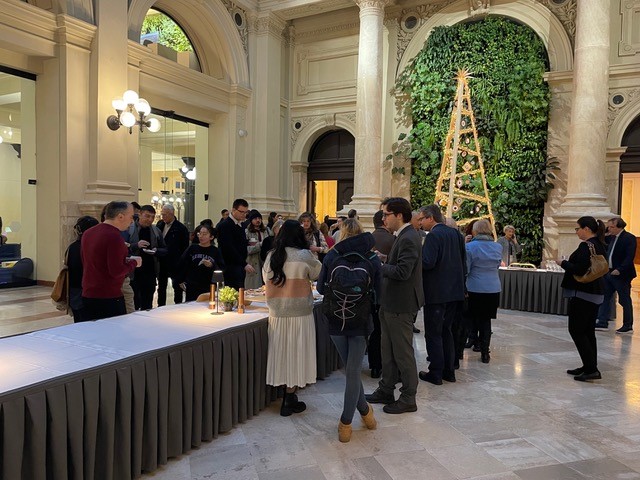
Participants in the discussion agreed that thorough theoretical education is essential for academic quality, and that it is not advisable to directly serve the hectic needs of the labour market, which change rapidly. Instead, the focus should be on the development of competences. (Gyarmati noted that Hungary currently educates more university students than the US, which is too many for the market to absorb.) It was said that the study programme is not just a diploma but provides interdisciplinary knowledge that can be used to fill a wide range of positions, from multinationals to civil society organisations. Experts stressed the need to build real relationships with students, encourage international mobility and invest in human capital. They said that the Bologna system should be adapted to Hungarian conditions and stressed that it is important not only to provide education in English, but also – as a national interest – to teach the Hungarian language and discipline in Hungarian.
